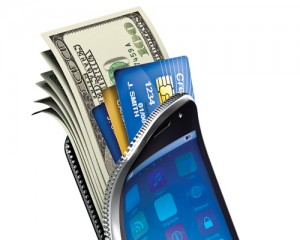The Digital Wallet Wars
Ajit Deshpande - March 26, 2013 - 0 Comments
 Last week, global payments technology leader Visa announced it had added Overstock.com, its biggest online retailer partner yet, as a user of its V.me digital wallet. With over $1 billion in annual online sales across a variety of categories, Overstock represents a significant addition to V.me’s current list of 34 retailers, which includes LivingSocial and 1-800-FLOWERS. In addition, Visa also announced last week that it would introduce a fee for ‘staged’ mobile and digital wallet operators such as Google, Intuit and PayPal.
Last week, global payments technology leader Visa announced it had added Overstock.com, its biggest online retailer partner yet, as a user of its V.me digital wallet. With over $1 billion in annual online sales across a variety of categories, Overstock represents a significant addition to V.me’s current list of 34 retailers, which includes LivingSocial and 1-800-FLOWERS. In addition, Visa also announced last week that it would introduce a fee for ‘staged’ mobile and digital wallet operators such as Google, Intuit and PayPal.
So the digital and mobile wallet wars are in full swing as PayPal, Google, Mastercard, Square, Visa, Isis, LevelUp and others continue to jostle with each other for customer attention in what is clearly a fragmented market. In parallel, these wallet providers continue to build their two sided networks, consisting of online retailers on one hand and card issuing banks on the other hand. It is difficult to pick a clear winner here, since each participant has its own unique value proposition for customers and merchants. PayPal, MasterCard and Visa offer the experience of knowing the payments space for years. Isis represents the collective clout of AT&T, Verizon and T-Mobile. Square and LevelUp are the upstarts that seem to have cracked the SMB segment. And Google is, well, Google (plus Sprint plus Citigroup btw). So, as NFC adoption accelerates, we can expect the major banks and the major retailers to partner with all of these major wallet players, and at the same time try their own wallet offerings, resulting in one big free for all. And Visa’s fee surcharge announcement from last week might just be the beginning of all this…
So who might have a chance at benefiting from all this? It will probably be the arms dealers – current and next-gen Secure Element players such as Gemalto, NXP and ARM, and Trusted Service Manager players such as Opus portfolio company Sequent. But even more so, it could be the end customer, the one who now gets the opportunity to move towards a world with quicker transactions and fewer paper receipts and more actionable intelligence. And as long as that actually happens, this will be transition well done.